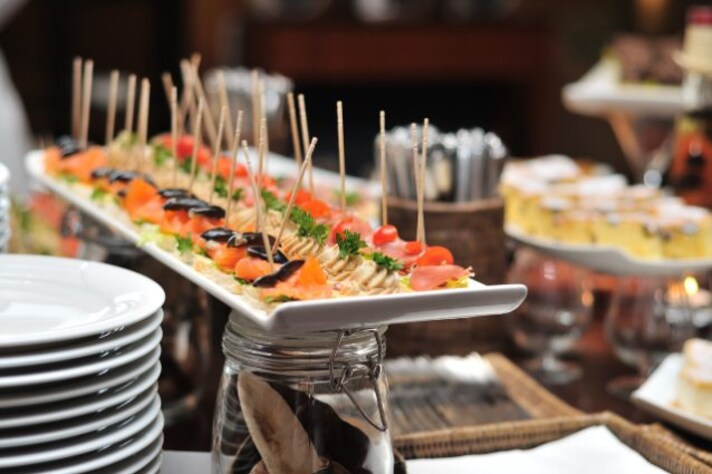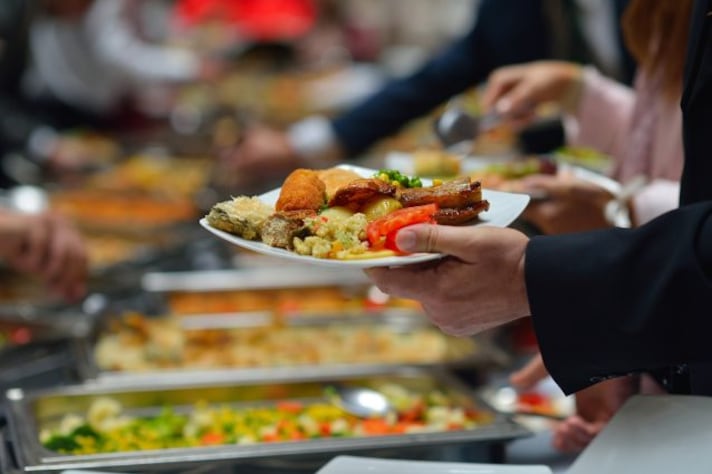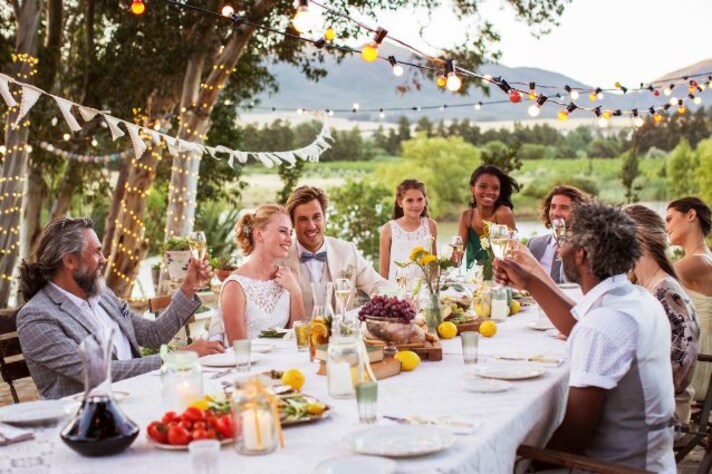
Organizing a wedding can feel like planning the biggest party of your life—on steroids. There’s the venue, the outfits, the music, the seating chart that somehow turns into a logic puzzle worthy of a Nobel Prize. But among the countless details demanding attention, food is right at the top of the stress list.
You want the day to be memorable, joyous, and delicious, but let’s be real: figuring out how much food to serve is a logistical challenge. Serve too little? Guests might leave hungry, grumbling, and reaching for fast food on the way home. Serve too much? You'll end up with trays of untouched hors d'oeuvres, wasted entrées, and a hefty catering bill that stings long after the last dance.
What’s the Ideal Size for a Wedding Menu?
Before diving into quantities, you need to map out the structure of your wedding meal. Wedding menus can be as elaborate or as minimalist as you like, but most follow a standard format:
- Cocktail Hour: A spread of finger foods, canapés, and drinks.
- Appetizers: Light starters served at the table.
- Entrée/Main Course: The centerpiece of the meal, often a choice between meat, fish, or vegetarian.
- Side Dishes: Vegetables, grains, or salads complementing the main course.
- Dessert: Often multiple options beyond the wedding cake itself.
- Wedding Cake: The grand finale, with slices served near the end of the evening.
The goal? Variety without excess. Typically, four to six courses (including the cake) hit the sweet spot for both elegance and practicality.

How Much Food Do You Actually Need?
When it comes to portioning food for a wedding, the golden rule is better safe than sorry—but not too sorry. Guests shouldn’t leave stuffed, but they also shouldn’t be eyeing the bread basket as a survival strategy.
A general guideline:
Cocktail Hour
Plan for 5-6 appetizers per guest if followed by a meal, or 8-10 if it’s a lighter, cocktail-style reception.
Appetizers
1 serving per person. If offering multiple, ensure half portions to avoid overwhelming guests.
Entrée/Main Course
1 standard portion per guest, typically 6-8 ounces of protein (chicken, beef, fish) or a plant-based equivalent.
Side Dishes
Plan for 5 ounces of vegetables and 4 ounces of starch per guest.
Dessert
If serving cake along with other desserts, 1-2 smaller portions per person.
Cake
The traditional wedding cake is often over-ordered. Plan for one slice per guest unless additional desserts are served.

What About Cocktails and Alcohol?
When it comes to drinks, the balance gets trickier. A free-flowing bar can be a hit—but also a budget bomb if overdone.
- Champagne Toast: One glass per guest. (Standard bottles serve around 5-6 glasses.)
- Open Bar: On average, expect 2 drinks per guest in the first hour, then 1 drink per hour for the remainder of the event.
- Wine for Dinner: Plan half a bottle per guest (red and white combined).
- Signature Cocktails: If offering a signature drink, 1-2 per guest before switching to a regular bar.
Pro Tip: Not everyone drinks the same. Some guests will stick to water, while others might celebrate a bit harder. It tends to balance out.
When Is It Too Much Food?
Yes, there is such a thing as too much food at a wedding. If guests are leaving half-full plates behind or sampling only a bite of each dessert, you’ve likely overdone it.
Offering too many entrée options can overwhelm both your budget and your guests' appetites. Buffets can be fantastic, but endless choices often lead to unnecessary waste. Cake, cupcakes, tarts, a candy bar, and ice cream? Pick two or three, max. The key? Curate, don’t overfeed.

Guest List Size and Dietary Preferences
The number of guests you’re hosting dramatically impacts food quantities. More guests don’t just mean more food—it means a broader range of preferences, appetites, and dietary needs.
Vegetarian, Vegan, Gluten-Free? Plan for around 10% of your guest list to require special dietary accommodations. Work closely with your caterer to ensure alternative options are available but not overstocked.
Planning for Leftovers: Waste Not, Want Not
Let’s be honest—wedding leftovers are inevitable. But that doesn’t mean they have to be wasted. If you're worried about over-ordering, here’s how to handle extras: many catering companies partner with local food banks to donate untouched leftovers; alternatively, you can provide eco-friendly containers for guests to take food home (especially cake slices).If you're a fan of brunches, you can use leftovers for a casual brunch the next day—think repurposed appetizers or extra desserts.
;Resize,width=767;)
